Iceland's 'pots and pans revolution': Lessons from a nation that people power helped to emerge from its 2008 crisis all the stronger
What can our friends in the north teach us about freedom?
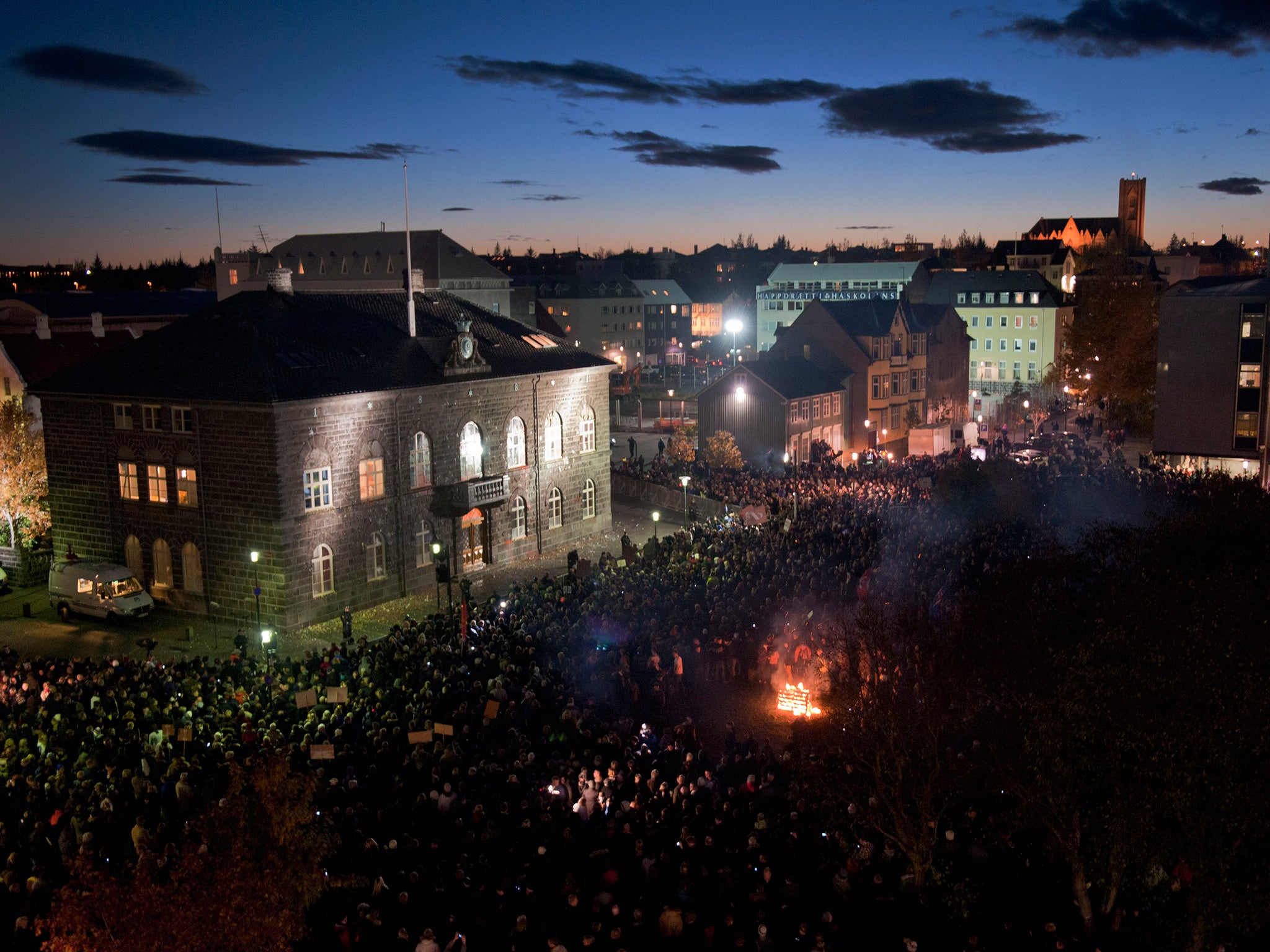
Your support helps us to tell the story
From reproductive rights to climate change to Big Tech, The Independent is on the ground when the story is developing. Whether it's investigating the financials of Elon Musk's pro-Trump PAC or producing our latest documentary, 'The A Word', which shines a light on the American women fighting for reproductive rights, we know how important it is to parse out the facts from the messaging.
At such a critical moment in US history, we need reporters on the ground. Your donation allows us to keep sending journalists to speak to both sides of the story.
The Independent is trusted by Americans across the entire political spectrum. And unlike many other quality news outlets, we choose not to lock Americans out of our reporting and analysis with paywalls. We believe quality journalism should be available to everyone, paid for by those who can afford it.
Your support makes all the difference.“I stood in front of the parliament building every lunch hour and asked people, ‘Can you tell me what has happened in this country? Do you have any idea what we can do’?”
Singer-songwriter, poet and gay rights activist Hordur Torfason turns 70 this year. He remembers how Iceland’s “pots and pans revolution” started from small beginnings just days after the government stepped in and nationalised the country’s three biggest banks in October 2008. As the stock market plummeted so did people’s trust in the government. The country’s banking bubble had burst, unemployment had tripled and Torfason recalls rumours that the supermarkets might run out of food.
What started out as daily conversations with ordinary people quickly turned into weekly demonstrations involving thousands. And after five months of escalation, the protesters’ demands were met: the government, the head of the Central Bank and the director of the Financial Supervisory Authority all resigned.
The protests gave the incoming left-leaning coalition government the political space in which to set up an investigations office with the power to prosecute bankers and government officials. This ultimately resulted in the country’s top bankers being charged with crimes such as insider trading and market manipulation and being sent to prison for terms of up to five-and-a-half years.
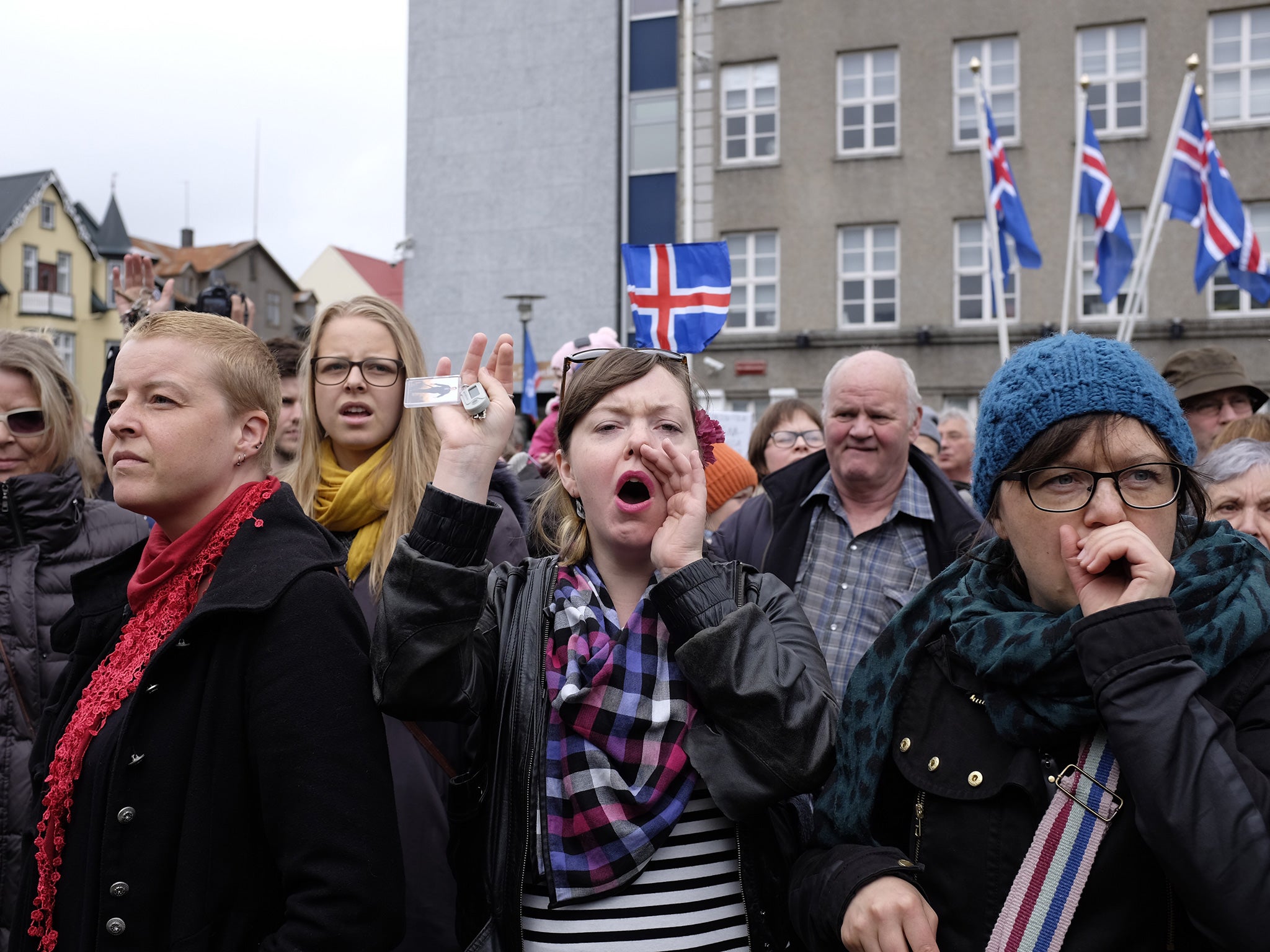
The country’s national court was less harsh on the prime minister, Geir Haarde, who was simply found guilty of neglecting to hold special cabinet meetings to address a crisis that many could see coming.
Whether nationalising banks, jailing bankers, imposing controls on the movement of capital out of the country or holding two national referendums on whether or not to pay back foreign debtors, Iceland’s response to their devastating financial crash bucked all trends. Yet, six years later, the approach seems to have been a resounding success. In March, the IMF praised Iceland for being “one of the top economic performers in Europe over the past several years in terms of economic growth [with] one of the lowest unemployment rates”, and for being on course to pay back its IMF loans early.
Hopwever, since May 2013 the right-wing parties that set the conditions for the banking crisis have been back in power and some worry that they may be reverting to their old ways. Earlier this month the government proposed lifting capital controls by the end of the year (but said it would impose a one-off 39 per cent tax on investors withdrawing their money from the country). If Iceland sees a return to crony capitalism, then the economic bounce-back could be a short-lived phenomenon.
In the long run then, what may turn out to be a more significant outcome of the revolution is the cluster of citizens’ initiatives that emerged, dedicated to improving the way democracy works. Rather than focusing on banking reform, the post-revolution push from Icelandic civil society has been on fundamental democratic reform. The logic runs: why treat the symptoms of a system that has become corrupt when you can tackle the disease itself?
“There is this Bible story that says a wise man does not build his house on sand,” chuckles anarchist Birgitta Jonsdottir, who is one of three Pirate Party MPs currently in parliament. In March her party – with its core policies of transparency, civil rights and direct democracy – started polling as the most popular in Iceland. Speaking from her home in Reykjavik in the middle of a hectic parliamentary schedule, she continues: “One of the big demands after the crisis was that we would get a new social agreement to build a new democracy.”
In 2010 the country did something remarkable. The parliament initiated a process whereby ordinary citizens could take part in writing a new constitution for the country. The resulting document, if implemented, would put human rights at the heart of their democracy, recognise the rights of nature and give citizens the right to call referendums, block legislation, table bills and present issues for consideration providing they can get enough support.
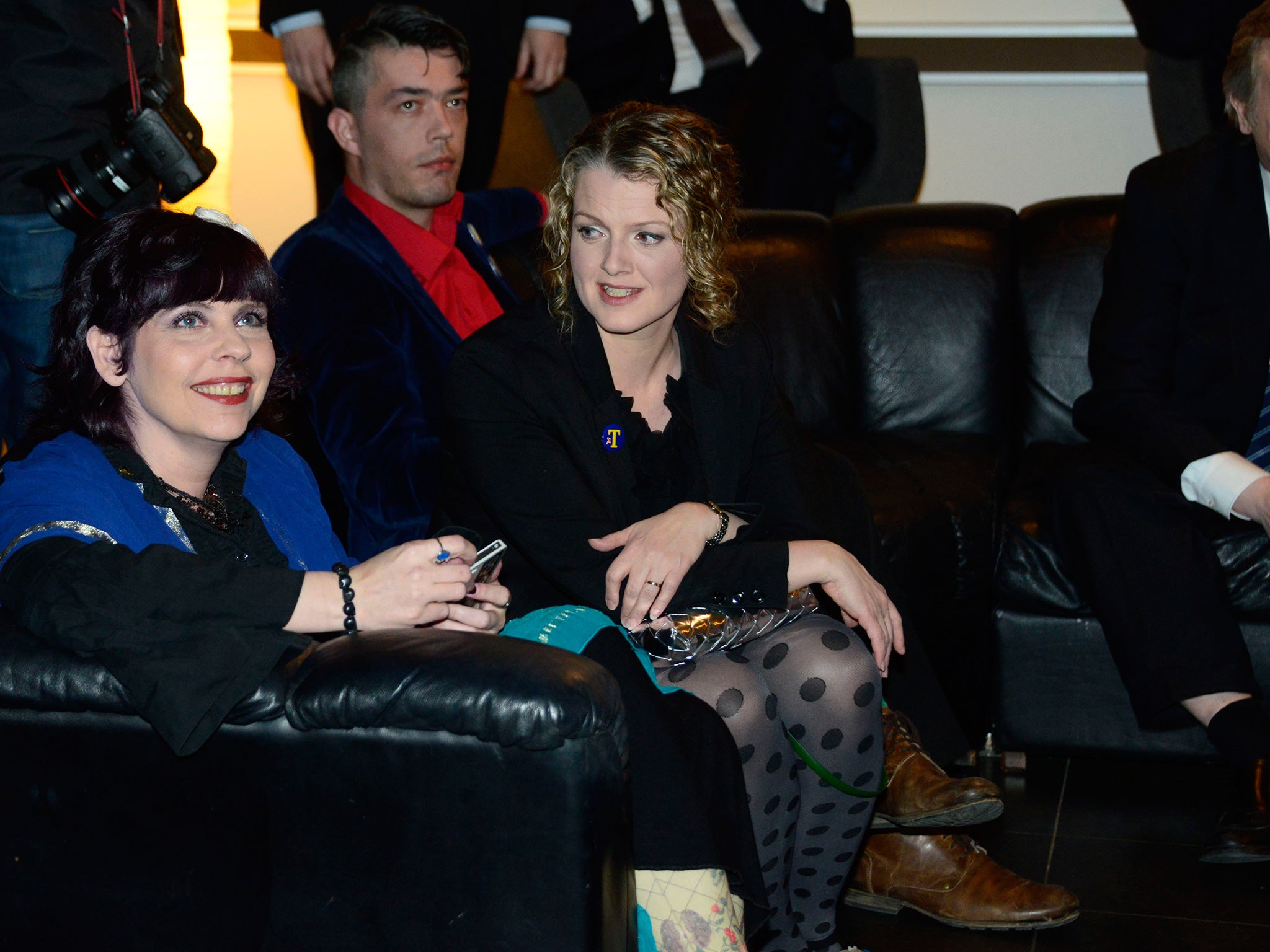
The process started with a peoples’ assembly of 950 citizens chosen at random which formulated some guiding principles. Next, a handful of experts on constitutional law wrote a 700-page guidance document. The constitution was then drafted over four months by an elected group of 25 citizens who decided to use consensus decision-making. The committee’s work was transparently communicated via the internet, with comments and contributions from the wider public taken on board as the writing unfolded. Afterwards, 67 per cent of people in a national referendum voted for the document to act as the basis of a new constitution for the country.
Researchers from the Comparative Constitutions Project found the crowd-sourced draft to be “squarely grounded in Iceland’s constitutional tradition”, yet at the same time “one of the most inclusive documents in history in terms of the extent to which citizens are incorporated into decision-making… Iceland’s constitution-making process has been tremendously innovative and participatory, which we predict will enhance its endurance.”
Katrin Oddsdottir was a law student when she put herself forward to be one of the 25 people who drafted the new constitution for Iceland. “At the same time as the protests there was this very wide dialogue within Iceland where people were trying to diagnose how they could make a better and fairer society,” she recalls. “The constitution became part of the dialogue about how we can fix this so we don’t have the same disaster repeating itself after a few more years.” Oddsdottir believes that the clauses in the constitution around access to information, transparency and separation of powers could help avoid a repeat of the 2008 crash by helping keep corruption in check.
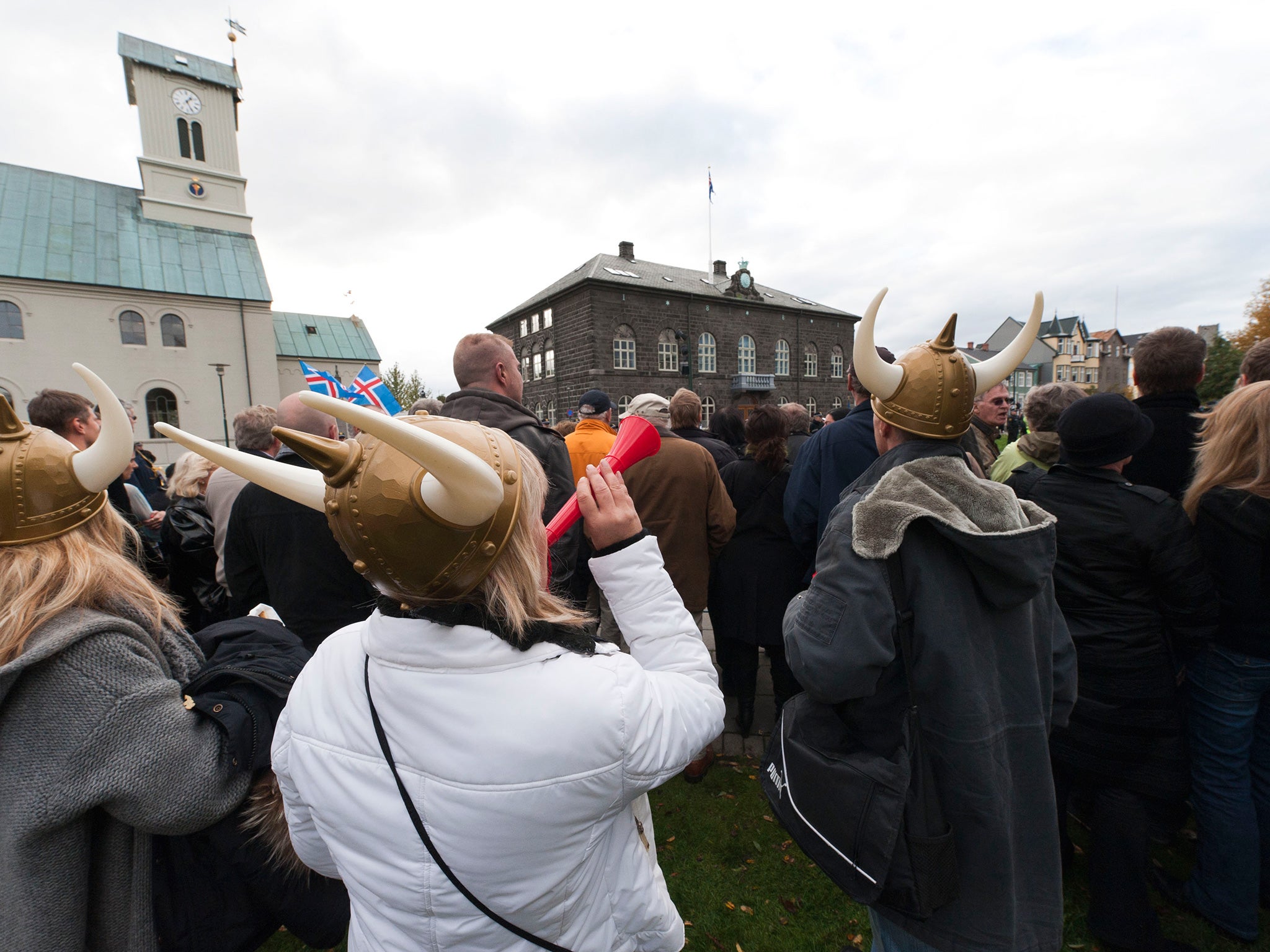
A belief in the power of transparency is also behind a more recent initiative that seeks to give Iceland the strongest set of media protection laws in the world. The International Modern Media Institute (IMMI) was a proposal of Birgitta Jonsdottir and the Pirate Party. Jonsdottir is keenly aware of the power of information through her work as a volunteer with Wiki-Leaks. She was involved in bringing the world’s attention to the Collateral Murder video which showed US troops opening fire on civilians, including a Reuters journalist.
IMMI wants a clarification in law so that people “inside the system” have a duty to report irregularities, Jonsdottir tells me. But its overarching aim is to support truth-telling in the media by providing protections for whistleblowers, journalists and sources who take the risks to produce the news on the one hand, to protections for the media organisations that publish their revelations on the other. Rather than invent a new rulebook from scratch, Jonsdottir and her IMMI team have scoured the globe for the strongest existing legislation in these areas.
Although parliament unanimously supported Jonsdottir’s IMMI proposal, implementation has been partial and slow. But with the Pirate Party’s new-found popularity, change could be just around the corner. “Now there is a really awesome, very focused steering group in the ministry that is writing up the IMMI laws, which means that in the next couple of years, if we have a government that understands their importance, these can be processed very quickly.”
To the anger of many and despite the popular mandate for Iceland’s draft constitution, the parliament has put the process on ice with many blaming vested interests. But for residents of the capital Reykjavik, direct democracy is not a dream that has been cruelly suspended, it is an experiment in motion.
Shortly after the crash, web developer Gunnar Grimsson and entrepreneur Robert Bjarnason created a not-for-profit organisation called the Citizens Foundation. “We were thinking about giving citizens more influence and connecting citizens with representatives in better ways,” Grimsson tells me. “We created a website called Better Reykjavik before the city elections in 2010 and sent the 10 parties a letter saying ‘try some electronic democracy’.”
The website allowed people to propose, comment on and vote on proposals for improving the city. The only party that responded was the Best Party, created by comedian Jon Gnarr as a form of satire. In a campaign video, based on Tina Turner’s “Simply the Best”, they promised: “Free towels in all swimming pools! A polar bear for the Reykjavik Zoo! A drug-free parliament by 2020! Sustainable transparency!”
“The Best Party didn’t really have an agenda,” continued Grimsson. “They promised to break all their promises and other jokes. It was cool, actually, but they didn’t have any policies so they jumped on the opportunity to use our software.” As they started pulling ahead in the polls, the Best Party effectively crowd-sourced much of their policy using the Better Reykjavik platform. The jokers went on to win the election forming a coalition with the Social Democrats and formally integrating Better Reykjavik into the city administration. Now every month the top 10 to 15 ideas get taken forward.
Grimsson and Bjarnason say that over 600 projects from Better Reykjavik and its more recent sister project Better Neighbourhoods (a form of web-based participatory budgeting) have been approved. These include closing the main shopping street in summer, turning an old power station into a youth centre, additional shelter for the homeless and more cycle paths. “It doesn’t really matter which area of the city you walk around, in a few minutes you’ll see an idea that came through Better Neighbourhoods. I don’t think society can escape the fact that electronic communication and electronic democracy will become more of a part of the decision-making process.”
Oddsdottir and others think that a strong reason for the current opposition from within government to the constitution is the conservative parties’ close association with the fishing industry: the new constitution says that the country’s natural resources should belong to the people of Iceland rather than a select few – something which threatens those who profitefrom the current system. “It’s crazy to have a referendum and ignore the results,” the lawyer says. “You can only hold the lid on that saucepan for so long before it really explodes.”
A Gallup poll in March showed that trust in parliament had dropped six per cent since 2014, to just 18 per cent. Protests outside parliament are starting up again. Just two weeks ago thousands gathered on Independence Day and last month saw another major protest. Is a second revolution brewing?
“I think I’ve been to nearly 85 per cent of all protests after the collapse and I’ve never seen so many cops,” says Jonsdottir. “I really sense the same dynamics as there were prior to the protests in 2009. The people in power are very scared. I would be surprised if we could get rid of this current government but the interesting thing about all revolutions and uprisings is you never know what the tipping point is.”
Torfason was at the protests, too. “I think the majority of people are saying that now is our chance. We will get a new constitution. It’s a modern constitution created by people we trusted. The system has become corrupt. We need to restart our system and I believe we should restart it every 20 years.”
Could we do something similar here in the UK? Anthony Barnett, founder of the Open Democracy website, believes that the lesson from Iceland is that we can and should trust citizens to determine how we are governed. “Iceland shows that regular people have the wisdom to do this just as juries have the wisdom to come to views in trials. You cannot leave it to parliament on its own to rewrite a system in which it has this enormous vested interest.”
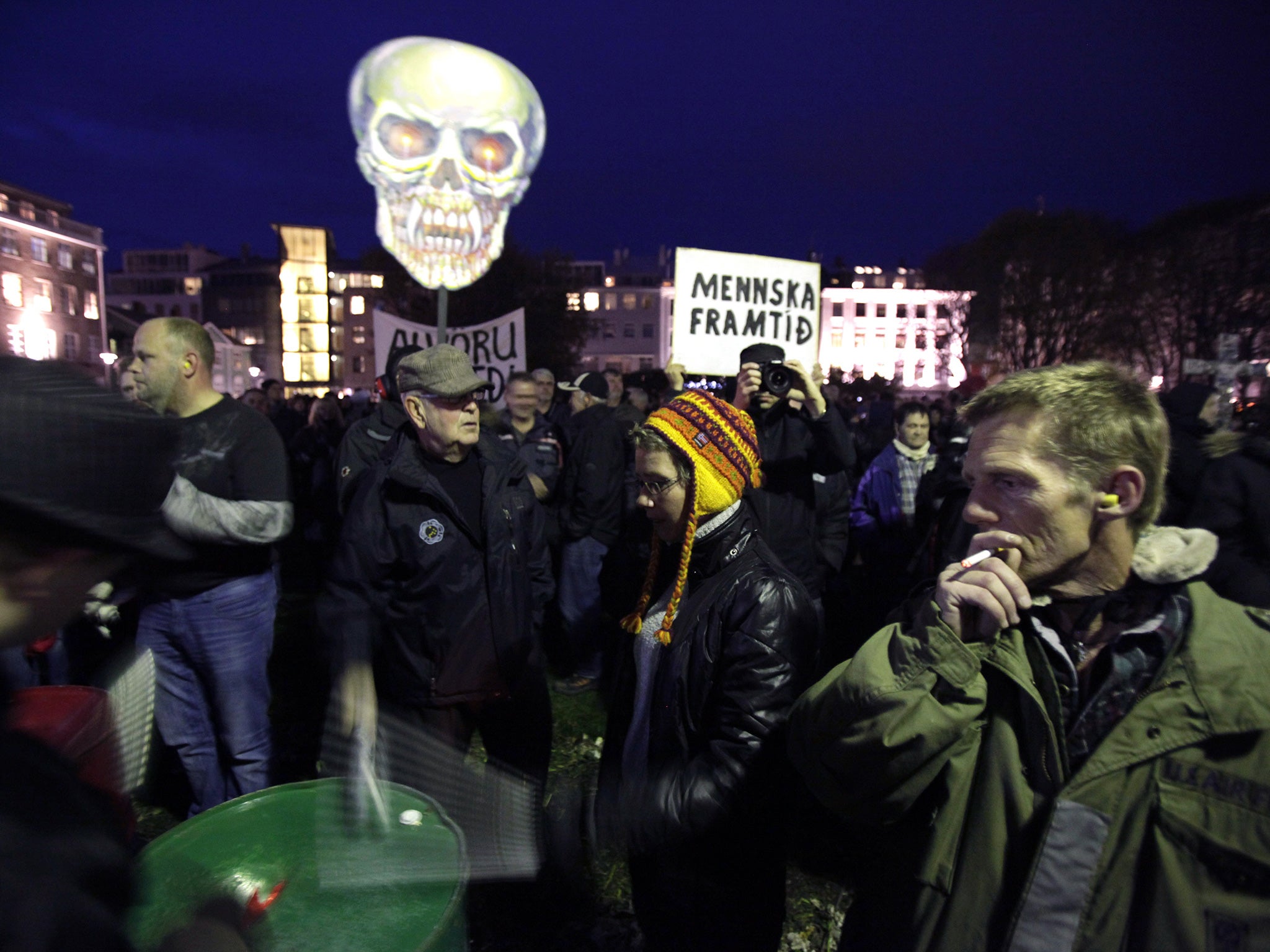
Political players like the Green Party and Occupy demonstrate there’s an increasing awareness that many single-issue campaigns – whether it’s the privatisation of public services or the failure to adequately address climate change – are symptoms of a democratic system that no longer serves ordinary people and therefore tackling them requires deeper, structural reform.
It’s a problem that Oddsdottir believes is common to many rich countries and one we need to wake up to if we are to deal effectively with multiple environmental threats. “Western democracies don’t really provide security for the citizens. They are really ancient in their way. This whole system of political parties and their interests being taken before the interests of the people, it has to change. We have such global problems at the moment that if we don’t fundamentally change the way we run nation states we will terminate ourselves.”
Transcripts of the interviews for this piece can be found at openDemocracy.net
Join our commenting forum
Join thought-provoking conversations, follow other Independent readers and see their replies
Comments